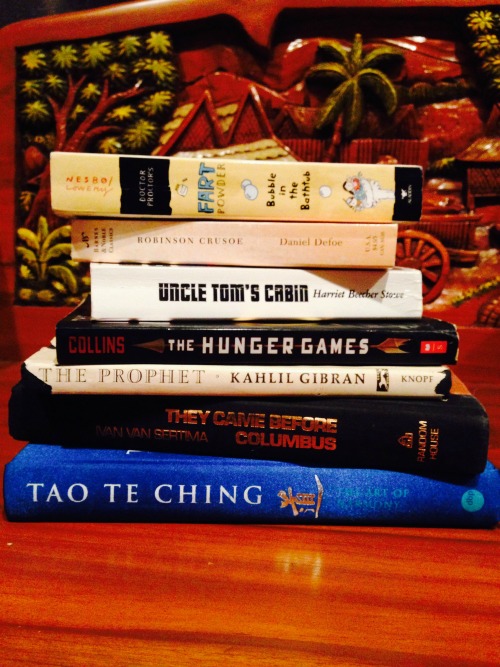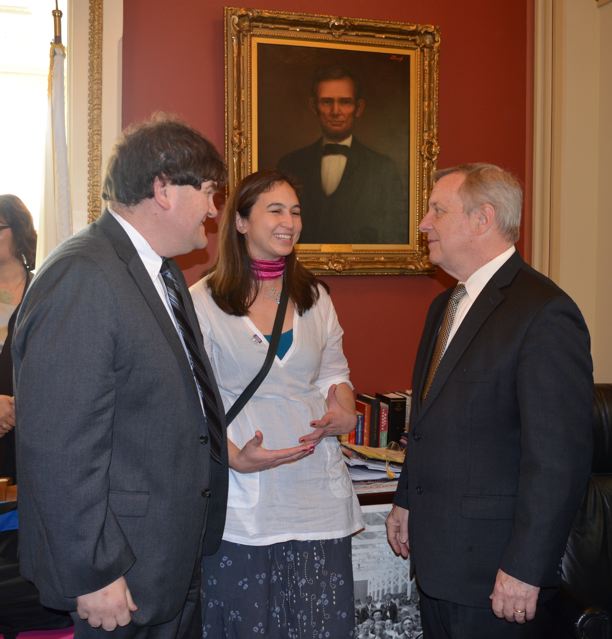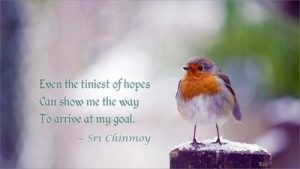
by Ecoziva (Brazil) | Nov 17, 2014 | 2014, Being Thankful, Brazil, Communication, Computers, Sexual Assault, Social Media, Uncategorized
 Imagine the scene: an eight year old girl with a Facebook account – allowed for by her parents. I will call her Maria. Maria’s parents both work full time and after school she stays at home with the maid. She has full access to the computer and knows how to navigate the Internet quite well.
Imagine the scene: an eight year old girl with a Facebook account – allowed for by her parents. I will call her Maria. Maria’s parents both work full time and after school she stays at home with the maid. She has full access to the computer and knows how to navigate the Internet quite well.
Several hundred kilometers away, a grown man creates a fake Facebook account using childhood photographs of a famous teenage singer. He contacts Maria and she accepts him as her online friend. They chat. At one point he says he loves going to the beach and sends her a picture of the singer, when around age eight, at the beach. “I also love going to the beach!” she says and, when prompted, sends him a picture of herself at the beach wearing a bikini.
The friendship progresses over several days. Maria is happy because she and the cute boy seem to have a lot in common. One day he asks for her phone number. He says his birthday is coming up and he wants to invite her. Using a child’s voice, he talks to her briefly and then asks if she can talk to his father. The “father” says the “birthday” will be a lot of fun: he will pick her up at school and take them to the mall, to the movies, for ice cream and other fun things.
He also tells her not to worry about talking to her parents. He will call them later and they will work everything out.
The day of the “birthday” arrives. The man gets to Maria’s school and tells the porter he is her uncle. The porter says he will have to call Maria’s parents to get permission for her to go with him. “No problem,” he says, “while you call I will go pick her up in her classroom”. Her parents deny the story and the man is not able to leave the school grounds with Maria. At this point the school staff has started to get suspicious and they are able to record the number of his license plate and inform the police.
The man is later intercepted at the state border. He has a criminal record and has already spent time in prison for molesting children. Unfortunately, as there was no formal accusation, the police are not able to arrest him.
The scary situation I described above is a true story that happened to the daughter of one of my husband’s colleagues. The topic came up in a talk how nowadays children are so computer savvy, and my husband commented on how we limit the kids’ screen time: we have no TV set at home; the eldest has limited time on the Internet and no social media or e-mail accounts; and, more recently, we have cut all screen time for the two smaller kids (both under four) with the exception of days at grandma’s and the rare trip to the movie theater. At that point the co-worker stated that nowadays it is impossible to control kids’ screen time and recounted what happened to his girl.
Valdemar Setzer*, a professor at the Computer Science Department of the University of São Paulo (USP) researches the impacts of screens on children and advocates that kids – for lack of maturity – should have no access whatsoever to the Internet (teens included). I recently heard him talk and a lot of what he said only confirmed my own opinions and reinforced the hard decision of eliminating all screen time for my two youngest kids at home.
On the other hand, it also got me thinking about how part of the problem doesn’t have to do with the screens themselves: it is much more about parents and children who spend way too little (quantity) time together, parents who overwork to make ends meet and are (understandably) too tired to play or do outdoor activities with the kids and the end of the day or during the weekends, or simply parents and kids which communication needs to improve a lot.
I am not trying to be judgmental here – I am grateful my job is flexible and allows me to have a lot of time with my kids, but I know other parents are not so fortunate.
However, even in my case stories like this make me once again rethink my priorities and find ways to organize our family life, as there is always room for improvement. After all, there is nothing more important to me that my children, and I believe that is the case for most parents. Also, despite all the benefits the Internet and other new means of communication have brought about (such as bringing together mothers from around the world in this blog!), for me real, active life is always better than the passive life that goes on “behind the screens” – not only for children, but for adults too!
And you, do you control your children’s screen time? If so, how? Please share your story!
[*] Prof. Setzer’s website is loaded with information on the effects of screens on children, including stuff in English – http://www.ime.usp.br/~vwsetzer/
This is an original post to World Moms Blog by Eco Ziva of Brazil. Photo credit: Sinistra Ecologia Libertá. This picture has a creative commons attribution license.
Eco, from the greek oikos means home; Ziva has many meanings and roots, including Hebrew (brilliance, light), Slovenian (goddess of life) and Sanskrit (blessing). In Brazil, where EcoZiva has lived for most of her life, giving birth is often termed “giving the light”; thus, she thought, a mother is “home to light” during the nine months of pregnancy, and so the penname EcoZiva came to be for World Moms Blog.
Born in the USA in a multi-ethnic extended family, EcoZiva is married and the mother of two boys (aged 12 and three) and a five-year-old girl and a three yearboy. She is trained as a biologist and presently an university researcher/professor, but also a volunteer at the local environmental movement.
More Posts

by ThinkSayBe | Nov 14, 2014 | 2014, Communication, Discipline, Divorce, Education, Girls, Homeschooling, Kids, Older Children, Parenting, ThinkSayBe, USA, World Motherhood, Younger Children
 Over the past ten years, my daughter has read quite a few books. She started reading books like The Berenstain Bears series when she was two or three years old; it was a favorite activity to do with her grandma.
Over the past ten years, my daughter has read quite a few books. She started reading books like The Berenstain Bears series when she was two or three years old; it was a favorite activity to do with her grandma.
By age six she was really into the Magic Tree House series, devouring them as soon as she got them home. She also had some strange requests at age six, like the book Growing Up in Mississippi. Personally, I thought that was a fine book for her to read, except for the third part which talks about the main character’s high school years (and experiences that accompany that time of life).
Of course I was in mom heaven, having a child who was such an avid reader. Her interest in reading spilled over into school, and she participated in various reading programs, and won some medals; which she absolutely loved.
The majority of the books she has read since age six have either been on a required school list of readings, suggested readings, part of a competition (like Battle of the Books), or popular books approved by her peers and teenagers (e.g. The Hunger Games).
Two years ago we told her that she needed to read some classics as well.
We explained that there is at least one reason why certain books are internationally recognized, and how books like The Hunger Games are partially a product of these classics’ influence on the new authors. My assignment for her (as a part of homeschool) was to read Frederick Douglass, a child-friendly version of The Hunger Games.
Her father’s assignment immediately after Frederick Douglass was The Lord of the Flies. She lives with her dad on weekends, but there was no escaping this reading ‘thing’ her parents were making her do! Poor girl! No breaks on weekdays or weekends.
I really tried to get her to enjoy reading Frederick Douglass. She and I talked about American history and how this book was about overcoming enslavement, and that it was important for her to read this as an African-American girl. I told her she could read whatever she wanted when she was finished, or even read a book of her choice simultaneously with this one. Nothing worked. She went from reading a book a week, to taking six months to finish Frederick Douglass’ biography. Lord of the Flies took a year for her to finish, and she really did not enjoy reading it.
After these two parent ‘fails’, I really just wanted her to read. I wanted her to rekindle the passion she had for reading and so I let her read almost whatever she liked. Her choices are actually pretty good. Some books have deep moral meanings, and some just talk about fun stuff like fart powder for the bathtub.
We used to keep books organized by content, but now we have shelves that carry books about varying subjects. By doing this, we hope that while she’s looking for a book to read, her eye may be caught by East Africa’s History, or The Prophet, or The Human Body, or something else she wouldn’t typically think she’d like.
Do you have a set of boundaries on what your child/ren can read? If so, what do you base it on? Have you tried to introduce different books to your child/ren? If so, how were they received?
This is an original post to World Moms Blog by Sophia. You can find her blogging at Think Say Be and on twitter @ThinkSayBeSNJ.
Photo credit to the author.
I am a mom amongst some other titles life has fortunately given me. I love photography & the reward of someone being really happy about a photo I took of her/him. I work, I study, I try to pay attention to life. I like writing. I don't understand many things...especially why humans treat each other & other living & inanimate things so vilely sometimes. I like to be an idealist, but when most fails, I do my best to not be a pessimist: Life itself is entirely too beautiful, amazing & inspiring to forget that it is!
More Posts
Follow Me:


by Martine de Luna (Philippines) | Nov 13, 2014 | 2014, Life Lesson, Motherhood, Parenting, Philippines, World Moms Blog, World Motherhood
Here in Manila, the Philippines, Christmas season is in full swing. Everywhere you go, there are signs of it: carols playing in the shopping centers; buildings decked out in holiday decorations; malls holding 3-day pre-Christmas sales; churches displaying the Christmas belen (Nativity) scene; people holding pre-Christmas parties and charity drives. Christmas here is a season of looking ahead to better days, and yes, also to December the 25th!
Speaking of carols, the line, “a thrill of hope” has been on my mind lately. I’ve not gotten around to bring out Christmas decorations (I’m one of those who waits til the end of November), but I have gotten around to thinking about that word “hope.” The line, of course, is from on of my favorite Christmas carols, O, Holy Night. As Christian, it means for me that I await Jesus Christ’s birth, because it holds for me “hope”, hope that He came to save the world in His coming.
Beside the belief that surrounds my religion’s commemoration of Christmas, I find the hope is something we all crave today in the world, isn’t it? With all the tragedy around us, the terror, the fear of disease… hope can often seem far away from our present reality.
And yet, it is always there. Thanks to efforts from the global community of “hope bearers” (like those mentioned this post on #BringBackOurGirls, or this post on the #AYA Summit), there is dialog going on; there is ACTION being taken. And by who? Well, at least for those in our community of global moms, women, mothers. As natural givers of life, I believe we as women are truly blessed with the capacity to HOPE. We know it all too well, during those nine or so months, for instance, when we bear that precious cargo in us!
I know it all too well, right now, in fact. As a second-time mother this coming 2015, I wait in hope for my baby daughter to arrive. I know I have hopes for her, too. For myself, I hope that I will be a good mother to two kids! (Help!) In fact, as I write this, she is kicking me vigorously and giving me quite a tiring episode, haha! I’m both tired and delighted to feel her kicks. Each one is a reassurance that all is well, and that I will see her really soon.
These “thrills of hope” — these summits we attend, the causes we support, the people we advocate through compassion and efforts to give — these all enthral us to ACT on hope. It amazes me that we have the energy to live outside of ourselves, of our own families, our children. And yet, it is right that we do, isn’t it? Because if there is anyone who can better relate to “thrills of hope” — and give fire to that hope — then it is us, world moms, from wherever we are around the globe.
What are your current hopes — for family, for yourself, or for the world around you? They can be big or small, or whatever. What’s important is to never lose faith in what’s possible!
This is an original post by Martine de Luna for the World Moms Blog.
Martine is a work-at-home Mom and passionate blogger. A former expat kid, she has a soft spot for international efforts, like WMB. While she's not blogging, she's busy making words awesome for her clients, who avail of her marketing writing, website writing, and blog consulting services. Martine now resides in busy, sunny Manila, the Philippines, with her husband, Ton, and toddler son, Vito Sebastian. You can find her blogging at DaintyMom.com.
More Posts

by Ecoziva (Brazil) | Nov 12, 2014 | 2014, Awareness, Brazil, Childhood, Cultural Differences, Entertainment, Family, International, Kids, Life Lesson, Milestones, Moving, Nutrition, Relationships, Stress, Tragedy, World Motherhood
This is the second post of a two-part series. To read part I of this post, please click here
 It was my fourth birthday party. Since we were moving to Brazil soon, it was also a farewell party, and a big one. It was the only big birthday party I have had in my entire life. I remember it was held at some sort of club, there were a lot of people and a hired caterer (something almost unthinkable for my mother!) And then there was the clown. And he wanted to paint my face.
It was my fourth birthday party. Since we were moving to Brazil soon, it was also a farewell party, and a big one. It was the only big birthday party I have had in my entire life. I remember it was held at some sort of club, there were a lot of people and a hired caterer (something almost unthinkable for my mother!) And then there was the clown. And he wanted to paint my face.
I was completely and irrationally terrified as only a four-year-old can be. While most of the other children were loving it all, I wanted nothing to do with the clown and his face paint (and certainly not on my face!). My party was ruined. In fact, I hid in the kitchen the entire time.
I don’t know exactly who stayed with me in the kitchen, but I don’t think it was either of my parents – at least not all of the time. Of course they were probably running around organizing things and tending to the guests. What really comforted me at that moment was the food, more specifically the dozens of intricately decorated mini-ice cream cakes. I recall later telling someone that the good side of the party was that I had stayed close to the food the entire time.
Although I hadn’t thought of it in a while, this story is not something that had been forgotten or hidden in my mind, as it has been told and retold over the years by my mother. The interesting detail that came up now was that of the ice cream cakes. When I remembered the ice cream cakes I felt like I could eat a ceiling-high pile. I felt like I had been looking for them my entire life. It was such a visceral craving it felt like nothing else could fill up my void except for those ice cream cakes. Right now writing this I want those ice cream cakes so badly it almost hurts.
It is interesting because here in Brazil ice cream cakes are rare – I believe I have only seen them for sale once in the more than 30 years I have lived here. I don’t know why this particular detail only came up so strongly now, nor what has been triggering this strong need for comfort and protection, which originally was a need to be shielded from someone scary (the clown) who wanted to do something I did not want to do (paint my face).
I don’t know if this is related, but it is also funny because I was never a big fan of makeup. Also, once when I was six and went through a brief period of interest for makeup, I got a kit of child makeup and ate several of the flavored lipsticks that came with it!
Perhaps this story will bring about significant change in my relationship with food, perhaps not, but it does bring up several issues related to my relationship with my own children.
For instance, it has reminded me that no matter how I try, it is impossible to protect them from every traumatic incident or foresee the lasting effect of seemingly small events on their lives. On the other hand, it is also a strong reminder not to belittle the things that upset them – what might seem insignificant or minor to me may be a huge deal to them and I must give them the best emotional support we can at all times.
Please share your stories about your relationship with food. Do you interfere in your children’s relationship with food? Do you actively foster a healthy relationship with food in your home?
This is the continuation of an original post to World Moms Blog published by our writer in Brazil and mother of three, EcoZiva. You can read Part I here.
The image in this post is credited to Chris Martin. It holds a Flickr Creative Commons attribution license.
Eco, from the greek oikos means home; Ziva has many meanings and roots, including Hebrew (brilliance, light), Slovenian (goddess of life) and Sanskrit (blessing). In Brazil, where EcoZiva has lived for most of her life, giving birth is often termed “giving the light”; thus, she thought, a mother is “home to light” during the nine months of pregnancy, and so the penname EcoZiva came to be for World Moms Blog.
Born in the USA in a multi-ethnic extended family, EcoZiva is married and the mother of two boys (aged 12 and three) and a five-year-old girl and a three yearboy. She is trained as a biologist and presently an university researcher/professor, but also a volunteer at the local environmental movement.
More Posts

by Cindy Levin | Nov 11, 2014 | 2014, Awareness, Elections, USA, World Events, World Moms Blog, World Voice

Cynthia and her daughters take a family selfie after voting
I’m an American and I voted on November 4th. I’m guessing that most of the global readership of World Moms blog didn’t follow our elections because this is not a presidential election year, but that’s okay. A lot of Americans didn’t either. That’s not okay.
Shamefully, only 38% of Americans voted in this November 4th election, which means 6 in 10 of us didn’t vote.
But that’s life. Low voter turn out in the off years of politics is just the way it goes. People tune out without the razzle-dazzle of a presidential slugfest and a new Congress is elected. But, now what do we do if we want to make our country better? Do we have to wait another two years to have a say? No. Not at all!
As angry as some people in my country tend to get with the leader of our country, the president of the United States is not the only one who has influence over policies that have wide-reaching impact on the lives of Americans and all residents of planet Earth. Members of Congress are elected to represent us in our 50 states and have their own measure of power on domestic and global affairs that can help or hinder a presidential agenda. For instance, the president can make budget recommendations, but only Congress can approve the actual spending of money. Budget decisions, foreign aid policies, gun laws, environmental policies, and a host of other choices are made by senators and representatives all year round.
This leads me to my main point. Election day is not the only day when Americans have a voice in government.
Since important decisions are being made every day, then every single day is an opportunity for Americans to shape U.S. policies whether it be through tweeting, blogging, writing letters to the editor, calling members of Congress, writing handwritten letters to Congress, or meeting face-to-face in Congressional offices. All of these actions are open to us. It is our right as citizens. (By the way, even if you’re not a citizen you can still write to U.S. newspapers or use Twitter to organize)
The idea that Americans can only affect what our government does only once every 4 years is a naive and antiquated notion.

U.S. Representative Jan Schakowksy of Illinois reads a letter from Cynthia’s children about supporting global child survival programs.
TV news – or any news, really – would lead anyone to think that voting or contributing large amounts of money are the only things that citizens can do. When so many people don’t know what kinds of effective actions they can personally take, most people end up just frustrated and giving up on our system without ever truly being a part of it. That’s the bad news. The good news is that this huge gap between most citizens and government creates space for concerned citizen lobbyists to slide right in and have great impact. I’m talking about everyday, concerned citizens just like you!
Even a modest amount of 10-20 phone calls on a topic can sometimes greatly influence a member of Congress because few Americans really bother to do it. A constituent meeting face-to-face with congressional staff or an actual member of Congress is even more rare and makes even more impact. These simple actions can have a great effect, especially if it’s an important yet little known issue.
Take, for example, funding to fight tuberculosis (TB), a highly contagious airborne disease. Most people in the U.S. think it doesn’t even exist anymore if they’ve ever thought about it at all. The truth is that in 2012, 8.6 million people fell ill with TB and more than 1.3 million people died from it, making TB the most deadly curable disease in the world. 95% of cases happening in low or middle-income countries, but since it spreads through the air when an infected person coughs, sneezes, or talks it can jump to wealthy nations even easier than Ebola. If treated improperly or ignored, it gives rise to forms of multi drug-resistant TB, which are far more difficult and costly to treat. RESULTS volunteer advocates keep up the drumbeat to members of Congress to fund the very inexpensive treatments to save lives across the globe and in the U.S. to make a tremendous impact on the dignity and income of people in poverty who can keep working in good health. Since no one is actually lobbying against saving lives from TB, a relatively small number of volunteers can educate their elected officials about it and have a huge impact on global health to the tune of $1.1 billion in new resources last year and $1.4 billion overall for the Global Fund to Fight AIDS, TB and Malaria. All this is done by earnest citizens voicing opinions without the media circus of an election cycle.

Cynthia and fellow RESULTS activist Richard Smiley talk to U.S. Senator Dick Durbin of IL about microfinance
Every election day, I encourage my fellow Americans to get out and vote, to be sure! That’s where engaged citizenship starts. But we shouldn’t stop there. Let our elected officials know what you want after they’re in office even if – especially if – they are not of the party you favor. Get involved with an advocacy group that shares your global outlook and desires to help mothers and children. (ONE, RESULTS, Shot@Life, and Bread for the World are great places to start) In our country, senators and representatives represent are supposed to work for US. It is your right and privilege to contact them on the issues that are important to you. Don’t waste it!
This is an original post written by Cindy Levin for World Moms Blog.
Do you vote?
Cynthia Changyit Levin is a mother, advocate, speaker, and author of the upcoming book “From Changing Diapers to Changing the World: Why Moms Make Great Advocates and How to Get Started.” A rare breed of non-partisan activist who works across a variety of issues, she coaches volunteers of all ages to build productive relationships with members of Congress. She advocated side-by-side with her two children from their toddler to teen years and crafted a new approach to advocacy based upon her strengths as a mother. Cynthia’s writing and work have appeared in The New York Times, The Financial Times, the Washington Post, and many other national and regional publications. She received the 2021 Cameron Duncan Media Award from RESULTS Educational Fund for her citizen journalism on poverty issues. When she’s not changing the world, Cynthia is usually curled up reading sci-fi/fantasy novels or comic books in which someone else is saving the world.
More Posts - Website
Follow Me:


by World Moms Blog | Nov 10, 2014 | 2014, World Interviews, World Moms Blog

On December 9th, 2014, WorldMomsBlog.com, a global community for women that writes from over 20 countries on motherhood, culture, humans rights and social good, will join media influencers and top government officials at The White House in Washington, D.C. The goal of the discussions will be “to increase awareness among young people and encourage their participation in educational, cultural and professional exchanges.”
“I am extremely honored and enthusiastic to be invited into the conversation around millennials and global and cultural exchanges at the home of the President of the United States of America.” — Jennifer Burden, Founder of WorldMomsBlog.com
In 1993 Jennifer won a scholarship from her hometown of Brick Township’s Board of Education to live with a family in Japan for a summer during high school. Her experience through Youth for Understanding was life-changing, and she still remains close friends with the Miyaji family in Japan.
“We’ve attended each other’s weddings, watched our families grow and exchanged support during tragic events of September 11th, 2001 and the tsunami that impacted Japan in 2011. It has been a mind opening experience to have such a connection with a family elsewhere on the globe, similar to the connections we are now making to mothers through World Moms Blog.”, says Burden.
However, Jennifer is just one of the many WorldMoms Blog.com community with a story of an early experience abroad that has made an impact. The invitation to The White House inspired us to ask our globally minded contributors about their early abroad experiences, if any. What we learned may surprise you!…
Our contributor, Ana Gaby from Stumble Abroad, is a Mexico native, who studied abroad in Canada during high school and in France in college. Karyn Van Der Zwet of Kloppenmum in New Zealand worked in London for four years during her 20s. And, Jennifer Iacovelli of Another Jennifer studied abroad in London, England while a junior at Syracuse University in New York, USA.
Dee Harlow, The Wanderlustress has lived all over the world and is now in Lesotho. She told us that during her 20s she was working abroad from the US in Singapore. K10K in Belgium of The Penguin and the Panther volunteered in Rumenia fixing up a local birth clinic and in Morocco helping to install an irrigation system in her early 20s. In fact, her husband proposed to her on that Morocco trip!
Kristyn Zalota of Cleanbirth.org went to Russia on an exchange just after the Soviet Union collapsed. And in college she did a semester in Luxembourg and went back to Russia after graduating and lived with a family. While, Kirsten Doyle of Running For Autism in Canada grew up in South Africa and lived and worked in Israel at age 23. She started on a kibbutz and then worked on farms.
Elizabeth Atalay of Documama spent a summer in Israel at age 17 after high school, a summer in Bolivia as college student at age 19 and backpacked around South America for the summer at age 21 and for 6 months through Africa when she was 24. She also spent four months backpacking around Asia/Pacific at 26 after college pursuing her work as a documentarian!
Jennifer Prestholdt, The Human Rights Warrior, took a semester off from Yale University when she was 20 and enrolled as a Norwegian student at the University of Oslo’s faculty of political science. She also worked at a barnehage (day care center) when in Norway. During law school, she spent two summers living in Geneva and working at the United Nations.
Nicole Morgan of Sisters from Another Mister went to college in South Africa, then spent a year traveling Europe, where she backpacked through Italy, Greece and Turkey. She volunteered for a while with the YWCA, and then spent six months working in a London advertising/graphics company while waitressing at night. Polish Mom Photographer, grew up in Poland and worked as an au pair as part of a cultural exchange program in U.S when she was 26. She also worked as a waitress in London, England for 2 months when she was 21!
Susie Newday of New Day, New Lesson grew up in the US and went on a program to Israel when she was 18. She lived and worked on kibbutz, and now resides in Israel. And, Olga Mecking, The European Mama, grew up in Poland and studied french in Nancy, France for a month. She then went on to study in Germany for a year, went to Canada for 4 months and then moved to Germany. She has now been living in the Netherlands for the past 5 years.
Tina Santiago-Rodriguez, Truly Rich Mom, of the Philippines grew up and studied in Brunei from kindergarten to secondary school, and then went back home to the Philippines to attend college. After graduating, she became a mission volunteer for her Catholic lay community and was assigned to Borneo (East Malaysia and Brunei) and Timor Leste for about 2 years, to do ministry work for youth and kids. She was then assigned to Manila for a year, then to Timor Leste with her parents and fiance for another year, before getting married at 26. She returned to Timor with her husband as newlyweds and stayed for another 4 years or so before returning to the Philippines.
Nicole Melancon, the Thirdeyemom, studied in Paris when she was 21 and worked as a fille au pair (nanny) and French intern the following year. While, Hannah Ashton moved to the US from the UK when she was 17, went to university in the US, but did her junior year back in the UK. She ended up staying in the US for three years after she graduated. And, Erin Threlfall went to Germany to study at a university and then went volunteered at a refugee camp in Ghana, where she stayed for 11 years!
Sophia Neghesti Johnson of Think Say Be from Tanzania volunteered in Santa Cruz, CA at Bosch Baha’i School for a year at 18. She then studied in Los Angeles, CA and Tampa, FL in her mid 20s with a focus on psychology. At 24 she worked as a freelance photographer for celebrity events in Los Angeles, CA, & has continued freelancing in Florida to sponsor girls’ education in Zanzibar at Regeza Mwendo School.
Our contributor, Anne Marie Wraight in Greece, went to Germany on a cultural exchange programme from the UK. Her choir and orchestra played several concerts together with the youth orchestra from Berlin. They also had a musical to perform which was a great hit!!! She was part of a group that stayed with the musicians from the host orchestra so they could practise our foreign language skills. This exchange took place every 2 years. She says it was, “Great on EVERY level of cultural exchange!”As a result of the experience, Anne Marie did her gap year in Berlin, where she volunteered with retired people who lived on their own and had special needs and taught English. She then moved to Greece in her early 20’s and still resides there today!
Jennifer Burden will be bringing these stories of the WorldMomsBlog.com community and more to Washington. The invitation to The White House is a big milestone for World Moms Blog, and we are over the moon about including our community in these top-level discussions of global importance for students and young adults! This honor is a true reflection of the hard work of our entire global editing and contributing staff toward running the site and opening minds to what life is like for mothers all over the world. Congratulations to every single World Mom!!
Did you travel abroad when you were in your teens or 20’s on a trip that has impacted your life? Tell us your story in the comments, and we will take it to Washington!
WorldMomsBlog.com is a community that shares the stories of over 60 contributors from over 20 countries on motherhood, culture, human rights and social good. We have been named a FORBES Woman Best Website for Women, ’12 & ’13; a NY Times Motherlode “must read” and recommended in the “The Times of India”.
World Moms Blog is an award winning website which writes from over 30 countries on the topics of motherhood, culture, human rights and social good. Over 70 international contributors share their stories from around the globe, bonded by the common thread of motherhood and wanting a better world for their children.
World Moms Blog was listed by Forbes Woman as one of the "Best 100 Websites for Women 2012 & 2013" and also called a "must read" by the NY Times Motherlode in 2013. Our Senior Editor in India, Purnima Ramakrishnan, was awarded the BlogHer International Activist Award in 2013.
More Posts

 Imagine the scene: an eight year old girl with a Facebook account – allowed for by her parents. I will call her Maria. Maria’s parents both work full time and after school she stays at home with the maid. She has full access to the computer and knows how to navigate the Internet quite well.
Imagine the scene: an eight year old girl with a Facebook account – allowed for by her parents. I will call her Maria. Maria’s parents both work full time and after school she stays at home with the maid. She has full access to the computer and knows how to navigate the Internet quite well.

 Over the past ten years, my daughter has read quite a few books. She started reading books like The Berenstain Bears series when she was two or three years old; it was a favorite activity to do with her grandma.
Over the past ten years, my daughter has read quite a few books. She started reading books like The Berenstain Bears series when she was two or three years old; it was a favorite activity to do with her grandma.













